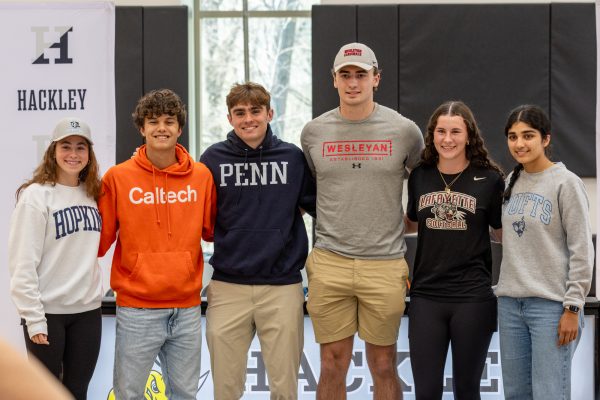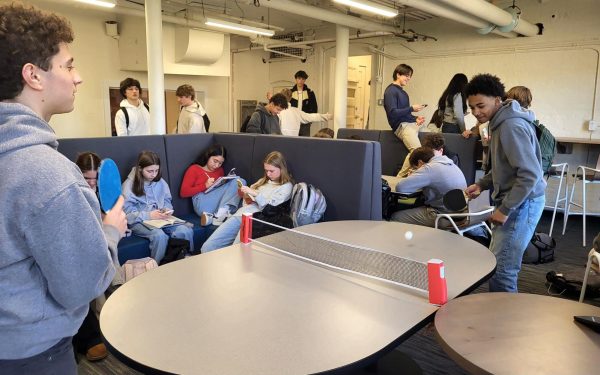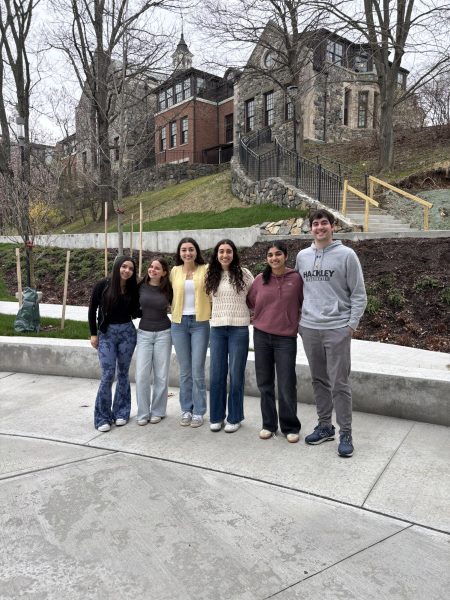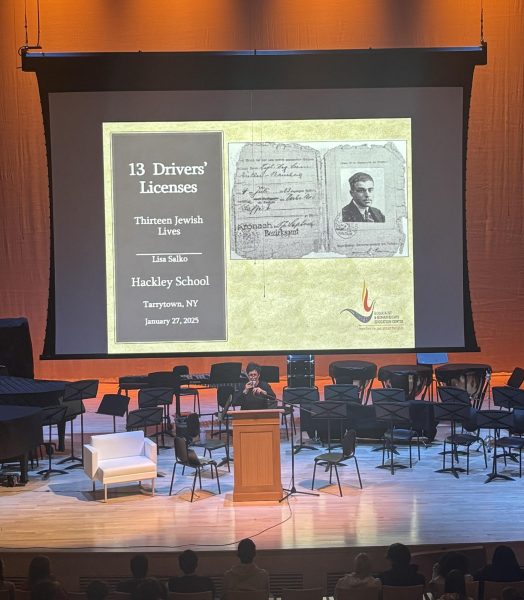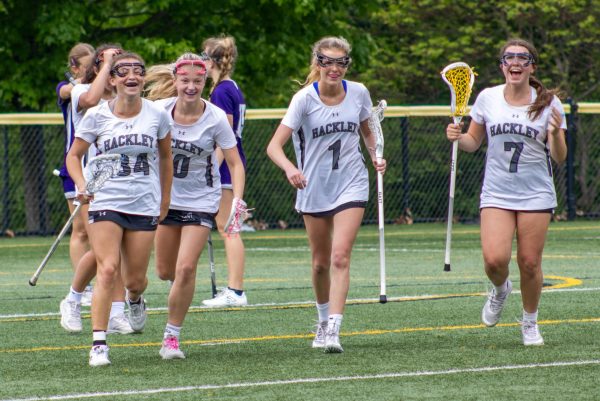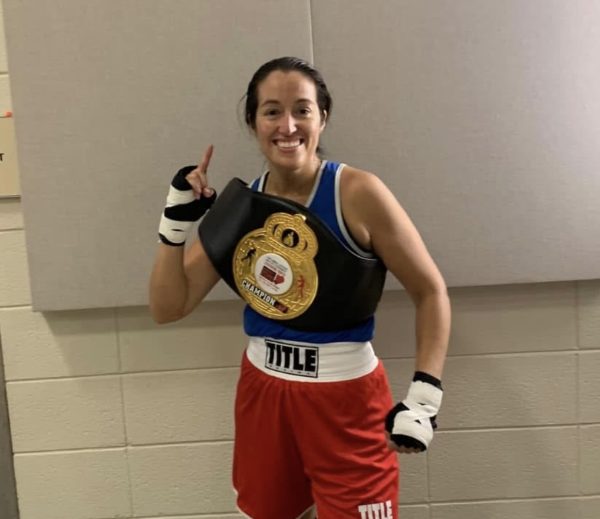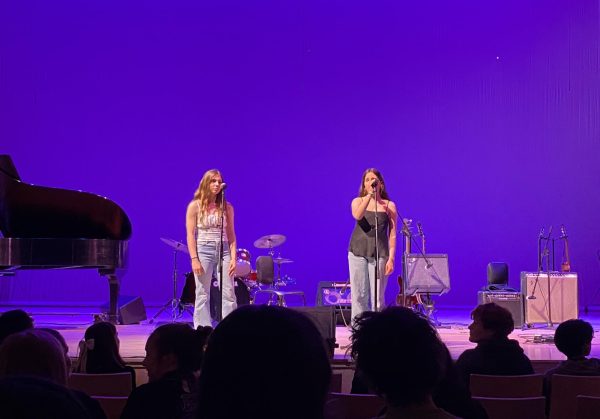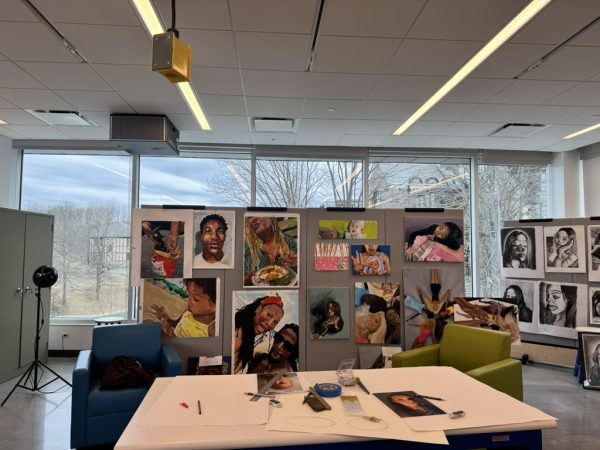The new generation of poetry: Instagram Poets fail to capture respect in the poetic world
With the rise of Instagram poetry, there are rumblings about what kind of wordsmith will dominate the poetry landscape for the next few decades and whether or not they are equipped for the job.
By definition, “Insta-poets” are the Instagrammers with accounts widely focused on poetry. Having reaped worldwide attention throughout the network of social media, they are also widely known and their work heavily criticized for being inherently simple.
“On one level, I think that bottom line, more poetry is a good thing,” commented Director of Communications, Suzy Akin, who is also the faculty advisor to The Vision, Hackley’s Upper School literary magazine.
The Vision includes only high school literature. The Vision is “for the students and by the students.” In other words, it is a safe space for students to share their artistic and literary accomplishments with the rest of the student body.
“And yet, I would also want to challenge people to think about what constitutes poetry versus meaningless fluff. Poetry, real poetry, depends on elements of form and structure, that take a message beyond just an emotional outpouring to something with staying power. It challenges people to engage thoughtfully,” she added.
The Instagram Bard, @rmdrk, who has acquired 1.9 million followers on Instagram since 2015 when he first started his account, is a prime example of the growing success of Instagram poetry. His writing generally deal with minnesinger themes of love and loss.
https://www.instagram.com/p/BwgUPx_ny0Y/
He dishes out the banal statements typically in short uncapitalized stanzas: “it’s okay to be alone but not to feel/ alone.” and “everyone needs someone to go home to./ someone to claim them as their own. that’s love.”
Not everyone on Instagram is a fan of his work: “I feel like this statement is contradictory in and of itself,” comments @katrinavaleriano.
Nonetheless, @rmdrk currently has one of the most popular writing accounts on the platform. People are inspired by him, and most comment on his pictures merely to show gratitude, thanking him for expressing what they could not express before. Others tag friends and family members as a way to share these newly found feelings to the ones they love.
According to Tech Times, @rmdrk’s book, Beautiful Chaos, is the 7th best-selling poetry book on Amazon, which places @rmdrk’s book on the same level as those written by Edgar Allan Poe and Sylvia Plath.
Poetry sales are up this year, and it’s all because of Instagram, according to The Guardian. Young writers across the world have turned to social media in a laudable attempt to transfer the traditional world of poetry into its social-networking, young adult subgenre.
But tension brews between the old and the new as this new generation of verse-writers use social platforms to advance in the world of poetry.
Good poetry will always hold itself to those standards set by Shakespeare and Wordsworth. It has become increasingly difficult for more contemporary writers to shift from the universally accepted traditional approach to versification, and even more difficult for traditional poets to accept the rapid evolution of the medium world without comparing it to the past.
We live in a world that worships those great old poets. We make their words into Broadway productions, Hollywood pictures, and we continue to teach them to new generations of high school writers in the classroom.
There is a real concern that poetry will cease to affect people in the many ways poetry of the past continues to influence people today. It is hard to imagine Instagram poetry holding up under intensive close reading, let alone schools teaching the work of @rmdrk hundreds of years from now.
Even those who realize that the newer generations must find their own way fear that writers will become compliant in the new simplicity of Instagram poetry. And the meteoric ascent of Instagram poetry has not been encouraging, having normalized the version of poetry that is merely a few thinly dispersed lines in typewriter font, riddled with clichés, and written over pretentious “artistic” drawings of dandelions.
The poetry community cannot help but wait out for the next Shakespeare, someone who will inspire not just a generation, but the generations that follow.
Many members of the poetry community have been adamantly and publicly opposed to Instagram poetry for all that it stands for. Lindsay Saienni, for example, wrote an intriguing Medium article entitled “Instagram Poets Are Ruining Everything.”
“I cannot sit idly by and watch them [Instagram poets] gain traction, attention, and digital fame while real poets are struggling to make ends meet because this is something they’re truly passionate about,” wrote Saienni.
Saienni goes on to argue that Instagram poetry is not actual poetry, but rather a series of shallow epigrams that anyone could write. It stands that when artists are encouraged to push boundaries, it usually produces good work, but when pushing boundaries is the only aim, the result is not always great.
Whether or not it is accepted by the broader community, Instagram poetry is making waves. According to The Atlantic, 12 of the top 20 best-selling poets last year were popularized by Instagram. The Bookseller also notes that poetry sales have increased by 66% in the past five years.
Ms. Akin talks about a responsibility, which is that of all of the young writers here at Hackley: “Rather than saying don’t use Instagram for poetry, challenge poets to get out there and up the level of content that’s being shared. Drown out the fluff with substance.”
It has become increasingly apparent with every new issue of The Vision published that the writers here at Hackley have the skills required to transform the poetry world. It is likely that the “next Shakespeare” probably lies amongst Hackley students.
There has never been a more convenient time to be a young writer than today. It remains critical that young writers not shy away from the access and opportunity technology and social media have allotted them. It is even more important for young writers to understand that they are so much more than the platforms on which they share their work.

